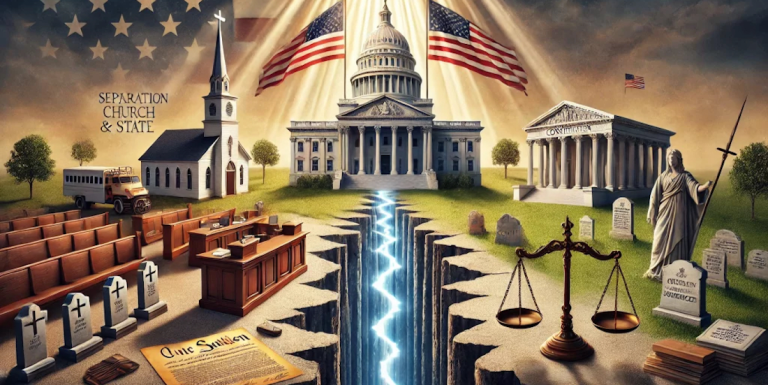
What? The death penalty for offenses like blasphemy, adultery, and homosexuality? In a nutshell, ultimately, Yes.

New York, N.Y. — Beneath the surface of contemporary American politics, a theological movement born in the mid-20th century exerts a quiet but discernible influence, its tenets resonating within certain corridors of power.
From 1985-91, I co-founded and fought with an organization offering simultaneously a lifeline to those caught in the grip of religious addiction and educating the public on the dangers of the Fundamentalist Mindset. This was Fundamentalists Anonymous.
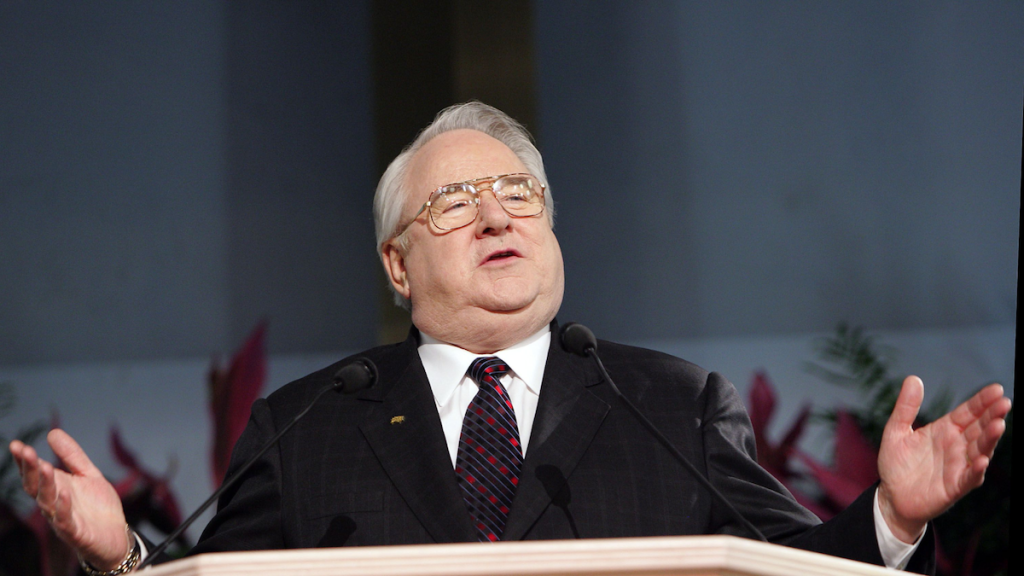
In fact, my partner Richard Yao (M.Div., J.D.), raised with Jerry Falwell‘s missionaries in the Philippines, and we were the first to use the term “religious addiction” on national television (Donahue, May 17, 1985), define “Fundamentalist Mindset” (and get the American Psychological Association to have a panel on this topic at their 1987 convention). [Phil Donahue–Luce Index™ score: 99/100].
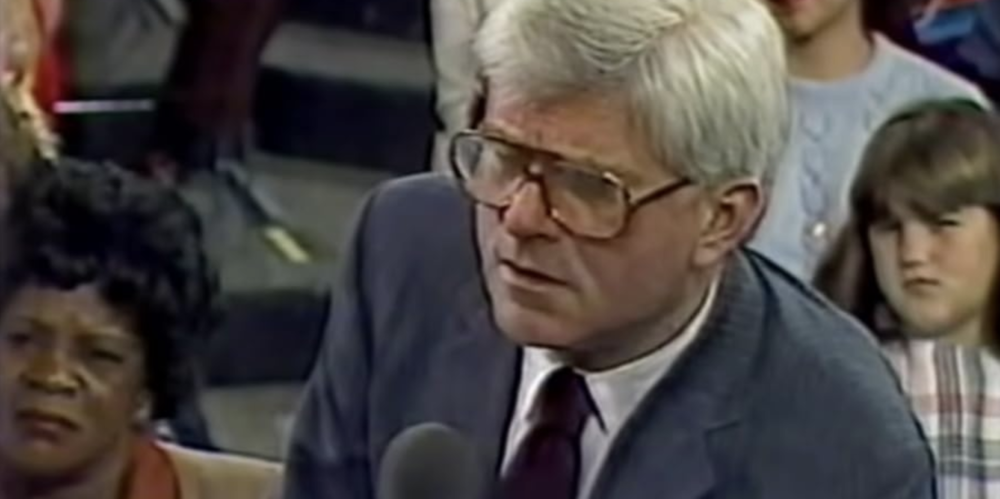
In fact, we followed TV evangelist Pat Robertson (700 Club) across the South during his presidential bid in 1988 holding press conferences to explain to the media what his belief in “Reconstructionism” (and R.J. Rushdoony–see below), and we testified against televangelists Jerry Falwell (Moral Majority) and Jim & Tammy Bakker (PTL) in Congress in 1989.
[Pat Robertson–Luce Index™ score: 55/100; Jerry Falwell–Luce Index™ score: 55/100; Jim Bakker–Luce Index™ score: 53/100]
We managed to work with the courts to topple the TV evangelists, but their ideas are back with a vengeance in the Trump Administration.
Trump [Luce Index™ score: 35/100]; has no belief system other than self and power–to be king–and he has opened the door to the Reconstructionists who are willing to make him king in an authoritarian state – a theocracy straight out of The Handmaiden’s Tale.
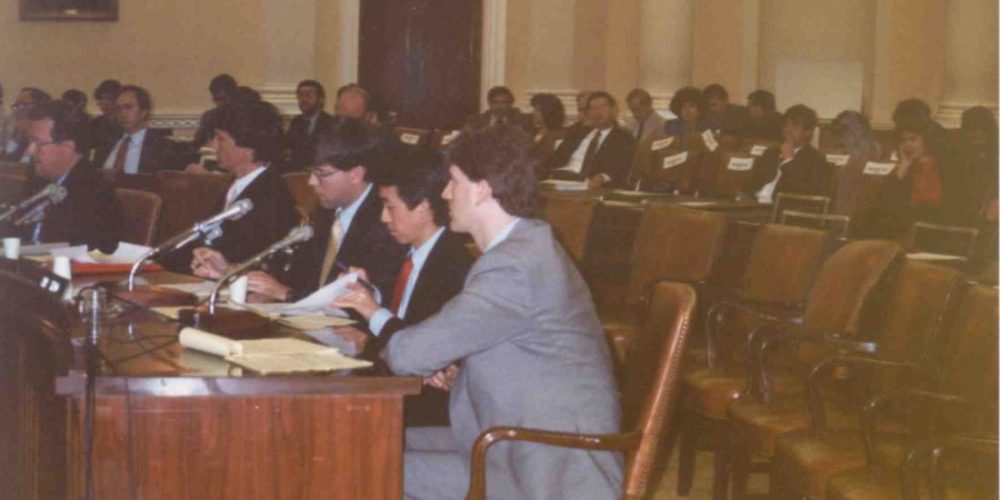
The Christian Reconstruction Movement, advocating for the implementation of Biblical law as the foundation for all civil governance, presents a vision starkly at odds with the pluralistic foundations of the U.S. Constitution. Its proponents champion a form of Dominion theology, aiming for a society governed by their specific interpretation of Old Testament statutes, encompassing areas from criminal justice to family structure.
While not all adherents publicly embrace the “Reconstructionist” label, the movement’s core ideas – including its views on
Christian Nationalism, the subordination of women, and vehement opposition to LGBTQ+ rights – permeate the rhetoric and
policy goals of several prominent figures connected to recent Republican administrations and the current U.S. Congress.
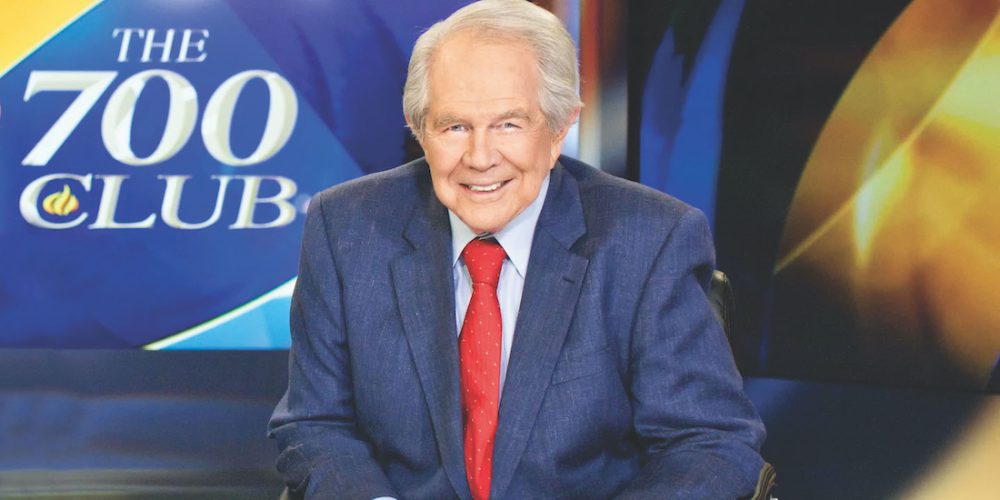
From Obscure Theology to Political Influence

The roots of Christian Reconstructionism lie primarily in the work of R.J. Rushdoony and his equally evil son-in-law, Gary North. Rushdoony’s magnum opus, The Institutes of Biblical Law (1973), systematically argued for applying Mosaic law, including its penal codes (often interpreted as requiring the death penalty for offenses like blasphemy, adultery, and homosexuality), to modern civil society.
Central to the movement is Dominion theology, derived from Genesis 1:28, which they interpret as a divine command for Christians to take dominion over every aspect of life, including government, law, education, and culture.
This vision explicitly rejects the Enlightenment principles underpinning the U.S. Constitution, particularly the separation of church and state, viewing them as impediments to establishing a truly Christian nation.
Reconstructionists believe society should be reconstructed according to their Biblical law framework, establishing a theonomy (God’s law) or theocracy.
While the movement itself remains relatively small and few politicians explicitly claim the Reconstructionist label, its ideas have significantly influenced the broader Religious Right and Christian nationalist currents within American conservatism.

Core Tenets and Contentious Positions
Christian Reconstructionism presents a comprehensive, and deeply troubling, blueprint for society.

Its vision is patriarchal, asserting distinct and hierarchical roles for men and women, relegating women primarily to domestic spheres and subservience to male authority within the family and church.
This view directly opposes concepts of gender equality and women’s autonomy.
The movement is vehemently anti-LGBTQ+, viewing homosexuality and transgender identities not merely as sins but as capital crimes deserving of death under their interpretation of Biblical law.
While acknowledging that such punishments wouldn’t be immediately implementable in contemporary America, they view them as the ideal standard to strive towards.
Sound familiar? Reconstructionists advocate for the abolition of public education, favoring
homeschooling or private Christian schools operating under their theological framework,
seeing state-run education as inherently secular and hostile to their beliefs.
They promote a radical laissez-faire economic model rooted in their biblical interpretation, often rejecting central banking and most forms of taxation and government welfare. Thus, they often receive support from Libertarians.
Furthermore–and this is admittedly complicated for the non-Fundamentalists–they hold ‘postmillennialist’ eschatology, believing Christ will return after Christians have successfully established His kingdom on earth through social and political dominance, fueling their drive for cultural and political influence.
Echoes in the Halls of Power: Key Figures and Sympathies
Identifying explicit card-carrying Reconstructionists within high-level U.S. government is difficult; the label is often avoided due to its controversial associations. However, the movement’s core ideas – particularly Dominion theology, Christian nationalism, opposition to LGBTQ+ rights, and advocacy for patriarchal structures – find strong resonance with several influential figures.

While not definitively labeled a Reconstructionist, Pete Hegseth [Luce Index™ score: 48/100], a prominent media personality and former C.E.O. of Concerned Veterans for America who served on the Donald J. Trump for President 2016 National Security Advisory Committee and was reportedly considered for roles including Veterans Affairs Secretary and Army Secretary, has expressed deep sympathy for these views.
Hegseth co-authored the book Modern Warriors: Real Stories from Real Heroes and frequently espouses Christian nationalist rhetoric on television, emphasizing America’s identity as a fundamentally Christian nation needing restoration. His views align closely with Reconstructionist ideals regarding society and governance.
Within Congress, members associated with the House Freedom Caucus and aligned with groups like the Family Research Council and Alliance Defending Freedom often promote policies reflecting Reconstructionist influence.

Figures like former Representative Steve King (R-IA) and current members such as Marjorie Taylor Greene (R-GA) and Lauren Boebert (R-CO) frequently utilize Christian nationalist language, advocate for policies restricting LGBTQ+ rights (particularly transgender rights), and promote a vision of America governed by conservative Christian principles, mirroring key Reconstructionist goals, even if not explicitly citing Rushdoony or North.
The appointment of Supreme Court Justices like Amy Coney Barrett and Brett Kavanaugh to the Court, nominated by President Trump and supported by Senate Republican leadership including Senate Majority Leader Mitch McConnell, was celebrated by groups advocating the rollback of separation of church and state precedents and the overturning of rulings like Roe v. Wade – outcomes aligned with Reconstructionist objectives of aligning law with specific religious interpretations.
Former Attorney General William Barr delivered speeches decrying secularism and championing a public role for religion that resonated strongly with Christian nationalist themes central to Reconstructionist thought.
Criticism, Controversy, and the Future of Influence
The Christian Reconstruction Movement and the broader Christian nationalist ideology it fuels face intense criticism across the political and theological spectrum. Mainstream Christian denominations, both Protestant and Catholic, often reject its interpretation of Biblical law and its theocratic aspirations as incompatible with the New Testament message of grace and the core American value of religious freedom for all.

Secular critics and advocates for civil liberties agree it as fundamentally anti-democratic and a dire threat to the U.S. Constitution, pluralism, and individual rights, particularly for women, LGBTQ+ individuals, and religious minorities. Its vision legitimizes discrimination and potentially violence under the guise of religious mandate.
The movement’s historical ties to figures who defended apartheid in South Africa and segregation in the U.S. further stain its reputation.
While Reconstructionism as a formal movement may not dictate policy directly, its ideational framework provides the theological underpinning and radical energy for activists and politicians pushing a hardline agenda on issues from reproductive rights to education policy and the role of religion in government.
The continued presence of figures espousing these views in advisory roles, media, and elected office ensures its influence will remain a potent, and contentious, force in American political discourse, challenging the very notions of liberal democracy and separation of church and state. – JL
The Reach of Christian Reconstruction: Theology, Politics, Controversy (Aug. 9, 2025)
Summary
This article examines the Christian Reconstruction Movement, its core tenets advocating governance by Old Testament law, and its influence on modern U.S. politics. It explores the movement’s controversial views on women, LGBTQ+ rights, and education, and identifies figures like Pete Hegseth and certain Congressional leaders whose support for Christian nationalism aligns with Reconstructionist ideals. The piece highlights the significant criticism this movement faces and its ongoing impact on American political discourse.
#ChristianReconstruction #DominionTheology #ChristianNationalism #BiblicalLaw #Rushdoony
#Hegseth #USPolitics #ReligiousRight #LGBTQRights #SeparationOfChurchAndState #Theocracy
TAGS: Christian Reconstruction Movement, Dominion Theology, R.J. Rushdoony, Biblical Law, Theonomy,
Christian Nationalism, Religious Right, Pete Hegseth, Donald Trump, U.S. Congress, House Freedom Caucus,
Gary North, LGBTQ+ Rights, Separation of Church and State, U.S. Constitution, Mosaic Law, Pentecostalism
